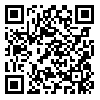Volume 21, Issue 81 (5-2022)
QJCR 2022, 21(81): 79-102 |
Back to browse issues page
Download citation:
BibTeX | RIS | EndNote | Medlars | ProCite | Reference Manager | RefWorks
Send citation to:



BibTeX | RIS | EndNote | Medlars | ProCite | Reference Manager | RefWorks
Send citation to:
nekoei S, abaspour Z. The Effectiveness of Acceptance and Commitment Therapy (ACT) on Anxiety and Self-efficacy of Children: A Single-Case Experimental Design. QJCR 2022; 21 (81) : 3
URL: http://irancounseling.ir/journal/article-1-1594-en.html
URL: http://irancounseling.ir/journal/article-1-1594-en.html
. Invited teacher, Department of Counseling, Ahvaz Branch, Islamic Azad University, Ahvaz, Iran / Assistant Professor, Department of Counseling, College of Educational and Psychology, Shahid Chamran University of Ahvaz, Ahvaz, Iran
Abstract: (8371 Views)
Aim: The aim of the current study was to investigate the effectiveness of Acceptance and Commitment Therapy (ACT) on Anxiety and Self-efficacy of children among children with anxiety. Methods: The statistical population consisted of all children diagnose with anxiety in Ahvaz. The research sample consisted of 3 children that were selected according to the results of the Child Anxiety Related Emotional Disorders (SCARED) , using purposeful sampling method. In this research, a single-case experimental design, type of non-concurrent multiple baseline designs was used. To evaluate the anxiety, Child Anxiety Related Emotional Disorders (SCARED) and self-Efficacy - Children's Self-Efficacy Scale were used. The data was collected in three phases of baseline, during intervention, and one month follow-up. Findings: The findings indicate that the subjects in the treatment phase experienced improvement in anxiety (30/96) and self-efficacy (28/13), and in the follow-up in regards to anxiety (38/44) and self-efficacy (32/25). The change index was indicative of meaningful changes (z=1/95 α=0.05). Conclusion: Therefore, the research findings illustrated that Acceptance and Commitment Therapy reduces anxiety and increases children's self-efficacy by increasing psychological flexibility and reducing dysfunctional reactions.
Article number: 3
Type of Study: Research |
Subject:
Family Counseling
Received: 2021/06/6 | Accepted: 2021/11/9 | Published: 2022/06/18
Received: 2021/06/6 | Accepted: 2021/11/9 | Published: 2022/06/18
Send email to the article author
| Rights and permissions | |
 |
This work is licensed under a Creative Commons Attribution-NonCommercial 4.0 International License. |






